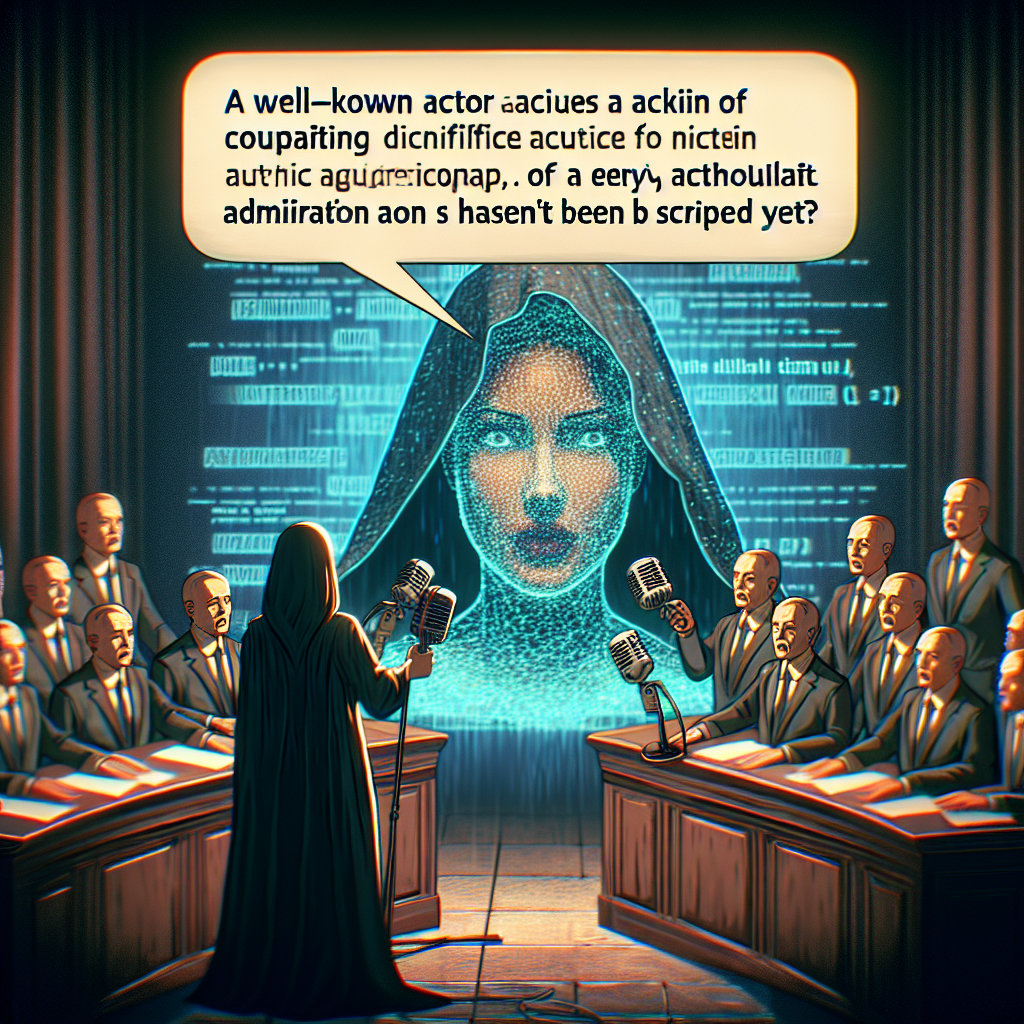Scarlett Johansson Lightheartedly Claims OpenAI “Borrowed” Her Voice for ChatGPT Innovation

“Scarlett Johansson Says OpenAI Ripped Off Her Voice for ChatGPT”
“…That’s what Scarlett Johansson alleges, anyway. In a cease-and-desist letter sent by Johansson’s lawyers to OpenAI this month, the actor says the AI research lab ripped off her voice to create a mimic for its conversational AI model, ChatGPT” (Wired).
Scarlett Johansson, the Hollywood actress, seems to be making headlines lately, though not for her latest movie roll, but rather, because of a tech showdown. A cease-and-desist letter to OpenAI? Talk about a plot twist! The subject matter is as gripping as a mystery thriller movie.
OpenAI, the research lab, is being accused of using Johansson’s voice without her consent to craft a simulation for its AI model, ChatGPT. An enterprise that involves creating artificial tones ought to have robot-like imitations. However, the actor claims it bears an uncanny resemblance to her own distinct audio signature.
Now, how does one govern the use of digital voices? Does the current copyright law adequately address this concern? Well, alas, it doesn’t seem like it. While imitation might be considered the sincerest form of flattery, the legal parameters of mimicking someone’s voice to the point where it is indistinguishable warrants an entirely different discussion.
Meanwhile, OpenAI finds itself amid a whirlwind. The firm denies using Johansson’s voice for their chatbot, intending to use a completely synthetic creation. However, if the artificial intelligence sounds like Scarlett Johansson, it can’t be a mere coincidence.
To mimic a voice using AI indeed raises questions about the boundaries of personal privacy in the digital age. How far is too far? These issues need to be addressed not just from a legal standpoint but also ethically. As AI technology continues to evolve, it seems like the line between what’s acceptable and what crosses the boundary is becoming blurrier every day.
The Johansson-OpenAI dispute serves as a stark reminder that it’s high time to have a comprehensive framework for digital rights and AI ethics. After all, absolute power in the hands of AI without any checks and balances can lead to unsavory outcomes, both intended and unintended.
This high-profile clash is a sign of technology’s progress and the complexities it brings as we delve deeper into the AI era. Expecting the conversation to end here is wishful thinking. This is just the beginning of many more debates likely to spring up in this brave new world of artificial intelligence and digital doppelgängers. This script, unlike one in Hollywood, isn’t written yet, and we can only guess where it will lead us next.
